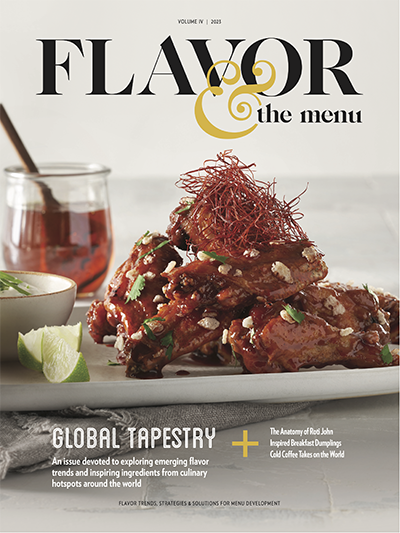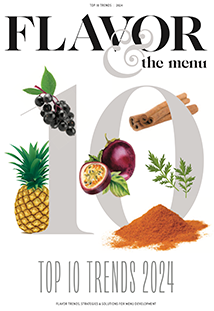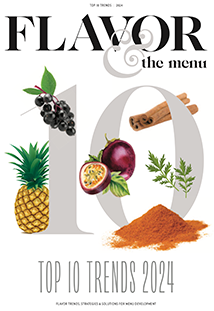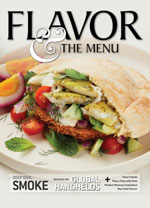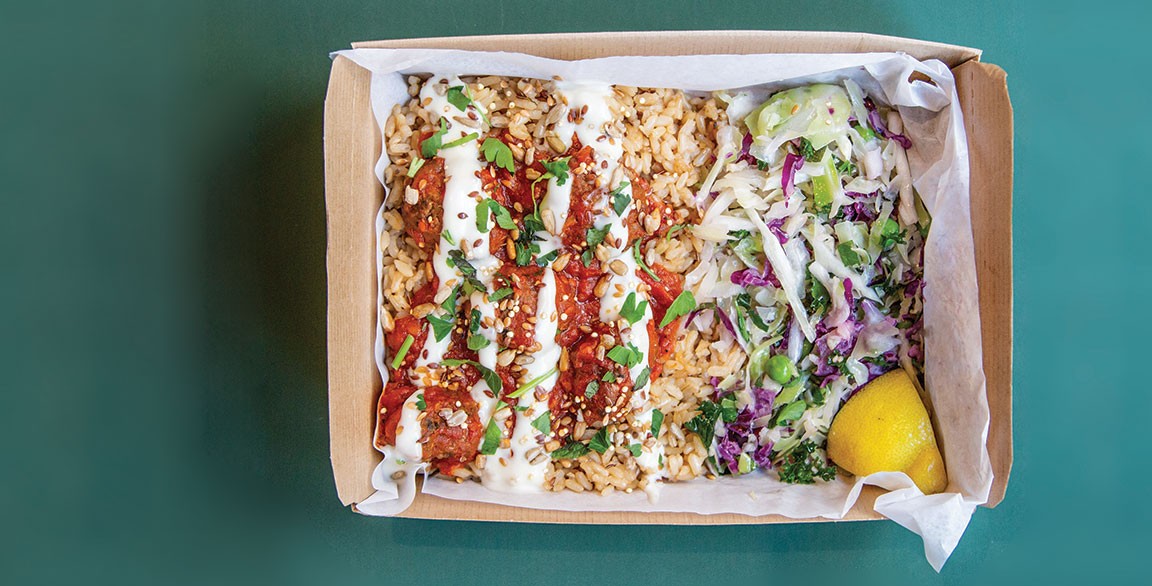

Leon is a U.K.-based fast-food concept that’s keen on rethinking what is possible within a model built on speed of service and affordability. Inspired by Mediterranean fare, it first opened in London in 2004 with a mission to serve healthy, fresh food that tastes good and can be eaten on the go.
Those are values not uncommon in the fast-casual space, but they’re less apparent in quick serve. With those principles wrapped into its brand promise of “naturally fast food,” Leon has expanded, moving into the U.S. market with three locations in Washington, D.C., and one opening in Fairfax, Va., in spring. Expansion in this country is clearly in Leon’s sights.
The restaurant offers breakfast and all-day menus, with curated options, including handhelds, salads and “hot boxes,” which are richly flavored, warm entrées served in easy-to-carry packaging. Leon’s No. 1 seller is its Moroccan Meatballs Hot Box, which sees flavorful brown rice (cooked in tamari, olive oil and lemon juice), topped with grass-fed beef/quinoa meatballs in a warm-spiced tomato sauce, then finished with aïoli, fresh mint and parsley. Leon’s signature kale-cabbage slaw is served alongside.
“Given the success of fast casuals in this country, particularly in the healthy-choice space, we thought it would be a challenge to introduce guests here to our curated dishes, rather than the customizable ones that they’re used to,” says Glenn Edwards, managing director for Leon’s U.S. operations. “But our research told us that they’re not typically choosing fast casuals because they want choices—they’re going to fast casuals because they are looking for freshness. Freshness over choice is motivating them.”
As a forward-thinking quick serve, Leon sees this as a big opportunity and anticipates continued success because of it.
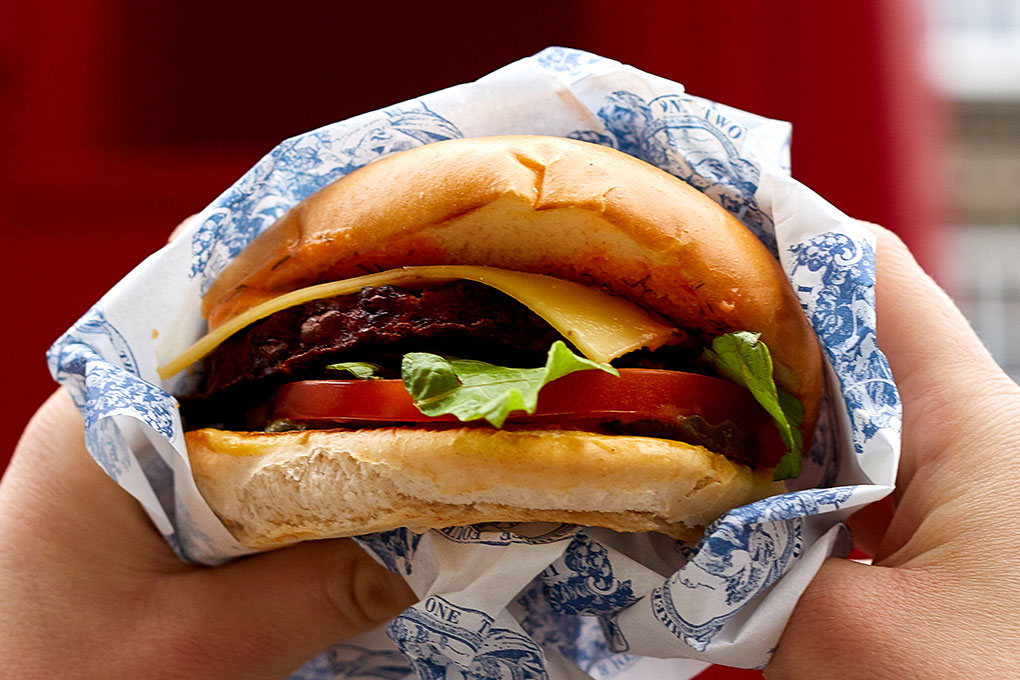
Leon’s plant-based Love Burger demonstrates careful attention to each component, building craveability with two sauces and ensuring good mouthfeel in the beet-soy patty.
The Love Burger
John Vincent, the co-founder and CEO of Leon, says inspiration for the quick-serve concept came in the form of a question he asked himself: “What if God did fast food?” That certainly sets a lofty goal, but it helped crystalize a mission.
Leon, a U.K.-based fast-food chain with more than 75 restaurants around the world, strives to create delicious food made with natural ingredients that makes people feel good about their choices. Washington, D.C., is the proving ground for U.S. success, with a varied menu inspired by the Mediterranean that includes breakfast items such as the Avocado and Halloumi Cheese Muffin with chile sauce and all-day options like the Mediterranean Salsa Verde Chicken Hot Box, starring savory brown rice topped with roasted chicken thigh and a fresh herb sauce flavored with capers, anchovies and lemon.
The restaurant chain strategically balances its menu with both meat- and plant-based dishes—Persian lamb tagine and sweet potato falafel are both on offer. Since its inception in the U.K. in 2004, plant-based items have always been part of the menu mix, but Leon only recently launched its first vegan burger, rolling out the Love Burger in the U.K. in 2018 and bringing it stateside in 2019.
“We wanted to capture the joys and characteristics of a Big Mac, but put it in a plant-based build,” says Glenn Edwards, managing director of Leon’s U.S. operations.
First up, the fast-food chain knew it wanted to make a proprietary, healthy patty. “It’s beet and soy, with a fairly coarse grind because we wanted some tooth resistance so you know you’re eating a quality patty. It’s baked, but it retains its moisture,” he says. It sits on a brioche bun and is topped with vegan Gouda, a vegan Carolina mustard mayo and Leon’s “burger” sauce, along with tomatoes and pickles.
“The real magic is the double sauce, with notes of fresh dill, yellow mustard, dates and smoked paprika,” says Edwards.

